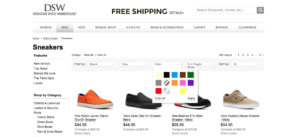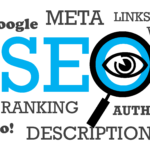Pay-Per-Clicks (PPC) Boosts Businesses

…when done correctly, that is. PPC is a marketing tool in which you build traffic to your website by paying for it. Advertising programs by Google, Yahoo, Bing, and others enable you to display your ad in “sponsored results” of webpages and search engine result pages. You pay a fee based on how often your ad is clicked and your website is viewed from that ad.
However, even the most beautifully designed advertisement will not automatically generate buyers. You must follow every step to ensure your PPC investment is reaching its fullest potential. Below, I’ve provided steps to follow when using PPC for businesses.
Introduce Your Product
Your ad should almost never lead to a page on sales and buying. When viewers are seeking information, they want to know what your page is about, why this is the best option, and of course, whether you have what they’re looking for. Never lead them straight to a sale when they need to get to know you better. Coming on “too strongly” is a turn off for buyers and bad for business and sales. In contrast, search queries seeking to buy right away may benefit from a PPC that leads to a sales page. Be wary!
Understand Search Queries
Realize that keywords are vague in the sense it can be used in various sentences. For example, someone searching “where is the best place to buy antique furniture?” is not looking for the same information as someone searching “antique furniture versus modern furniture.” Therefore, investing in “antique furniture” may reach people who have no interest in buying right away or at all, who click on your ad, and then leave right away. Targeting your audience is a tactic to match the search intent, leading to viewers who are interested in purchasing a product and bringing viewers where they want to be.
Target by Matching Customers’ Intent

When you review customers search queries and understand the intention in their search, you can better choose your PPC. This happens when you use search queries seeking information to provide informative ads, or when you have search queries looking to buy something to provide ads for buying. This matches advertisements with intentions and provides various options to many different potential customers. Customers seeking information can benefit from [free] E-books or E-courses, and signing up will provide them constant information. When they’re ready to buy, they already have trust in your experise.
Use AdWords to find which search queries are typed in that lead to your advertisement popping up. Search queries are what is typed into the search engine, and learning this provides you with how to successfully match your PPC. The key word is what you bid on in AdWords. To get more specific, remove the search queries terms you do not want associated with your PPC.
Keep Sales, Info, and Comparison Clicks Separate
As already explained, you don’t want to lead information seekers to sales, or the opposite for that matter. Therefore when reviewing search queries, create PPC for information seekers, comparison reviews, and sales.
Information Seekers
Information seekers should be provided with “about this company” pages, E-books, YouTube Videos, or anything else that will introduce you and your company. This can be on your website that offers a fill-in query where seekers can provide their name and email (with opt-in/opt-out options available).
Buyers
Buyers already trust in you and would like to buy something. Usually these words have “buy” “purchase” or anything that admits to wanting it now. Good sales tip for this part includes offering Free Shipping, or 15% off if you buy before _(insert date)___.
Comparison Shoppers
If a shopper knows what they’re looking for but needs to choose between you and other competitors, they will be using words such as “compare” “best” or “what is the difference.” An option here is to provide a free trial for x amount of days, pages to learn about the company, and pricing options.
 As Always, Test Out Your Search Queries
As Always, Test Out Your Search Queries
Be sure that your Adwords are correct, the search query intentions are matching, and that customers will find exactly what they need, when they need it.
For more information on how to get the most out of PPC as well as the benefits of PPC, contact Advernation LLC at 212-500-0594 of [email protected]. We look forward to helping YOU boost your business!







